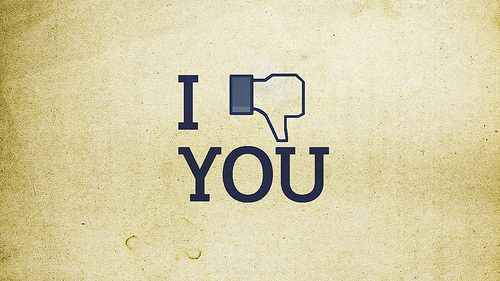Have you ever had someone go nuclear on you? You know what I mean . . . a friend, family member or co-worker drops a relational bomb on you that blows you up! Deserved or not, it hurts. Ready or not, it comes with destructive power that sends you into an emotional mess.
Occasionally, I get “you suck” emails from people. Sometimes they live far away and their email is in lieu of wasting their life savings on a postage stamp. More often than not, however, they live down the street, and they just don’t have the sense to talk with me about their beef. (Imagine that, talking instead of texting or emailing!)
Maybe they’re afraid.
Maybe they want to choose their words carefully, and they think an email is smarter.
Maybe they think I’m too busy to sit down and chat over a cup of coffee.
Whatever the reason, while they should be working or late at night when they should be sleeping, they craft a lengthy email filled with emoticons and BOLD CAPS. And once they hit “send” they feel they’ve done their best to communicate their feelings without giving a second thought to the bloody mess they’ve created.
Perhaps they’ve never read what Solomon wrote, “The tongue has the power of life and death . . .” (Proverbs 18:21).
The truth is email is a horrible medium for communicating your feelings to anyone. It generally lacks tone and always fails at body language (two extremely important factors in good communication).
So what should you do when you’re disappointed with someone? Whether you’ve been hurt by a nasty email or upset by your spouse, what are the best ways to deal with your frustration and anger?
Glad you asked! Here are some things that will help:
1. Bite your lip and count to a million!
Try not to react. In fact, under-react. The first thing that comes to mind to say in your defense is rarely the best thing to say to resolve the conflict. Sit down. Shut up. Give it at least a few hours, if not a day or so, before you respond.
2. Remember, don’t be right at the cost of being relational.
As I’ve often stated, there’s nothing wrong with being right, but you can be right and dead wrong if you sacrifice relationship on the altar of pride. It’s not just about you.
3. Zoom out and try to see the bigger picture.
Ask yourself this simple, yet powerful, question: What is really going on here? Maybe there’s an issue behind the issue. Maybe the person who’s hurting you is hurting. Maybe there’s something else going on in his or her life that has robbed them of any healthy margins. Loving others means putting their needs before your own.
4. Before you blast them, ask them.
In other words, before you go tit for tat and give them an ear-full, ask them the why, how and what questions. Why do you think this happened? How should I have handled this better with you? What can I do to heal what’s damaged or restore what’s been lost? This is the path of humility. Remember, words matter, so be careful little tongue what you say.
5. Listen more than you speak.
Listening is hard, especially when you’ve been hurt. When you’ve been emotionally wounded, your mind works overtime playing out a thousand scenarios of what you will say and how you will say it. We tend to script out our defense and focus most of our time and energy on how we’re going to set them straight! If possible, set up a time to sit down face-to-face with the goal of listening first and foremost. Often, 90% of the problem is resolved when someone genuinely feels cared for and heard.
6. Affirm your love before, during, and after any corrective word is spoken.
There is a place for truth and correction, but the Apostle Paul wrote, “Speak the truth in love . . .” (Ephesians 4:15). The single most important thing that must come out of any relational conflict is a commitment to love each other no matter what. Why? “Because love covers a multitude of sins” (1 Peter 4:8).
7. If things don’t go well and a wall is built to keep you out, build a bigger wall to take them in.
The difference between your wall and their wall is yours is built to be inclusive and to protect the relationship, not eliminate it. We can’t control the reactions of others, but we can control our attitude. We can choose to stay committed to them even if they’re trying to cut us out of their life. It takes two people who have given up to permanently end a relationship. Don’t be the one to quit. As long as you’re open to restoration, there’s hope.
I wish I could tell you that I’ve learned these “seven secrets” the easy way. I haven’t. Most of them have come through multiple and painful relational conflicts. The good news is you don’t have to learn everything the hard way.
So let me encourage you to decide now to put these seven relational practices into play the next time you’re in the middle of an emotional explosion.
What have you got to lose?






